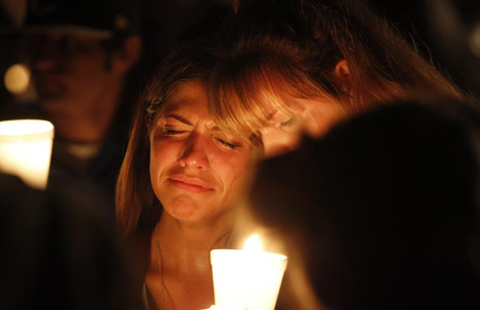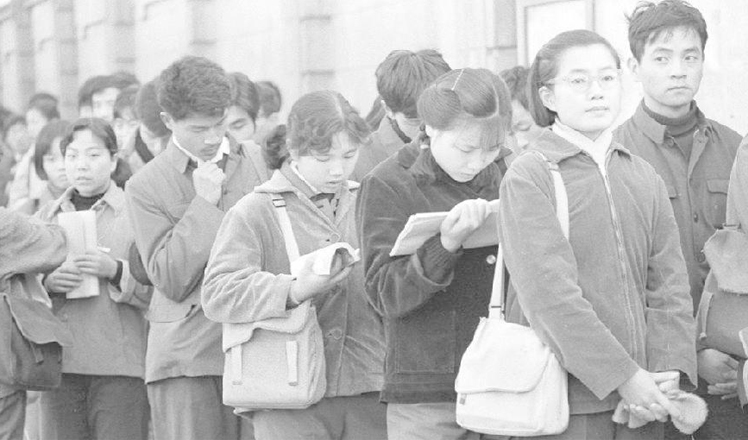The real self as opposed to false pride
Updated: 2015-10-05 08:33
By Li Yang(China Daily)
|
|||||||||
Western coloring books remind me of Chinese realistic painting, which also emphasize the details of objects. But few Chinese like it today. As a result, that school of painting is in the throes of death.
Coloring in complicated pre-drawn patterns is much easier than drawing even a simple realistic figure in traditional Chinese style, because the latter takes years of practice, training and thinking.
The coloring books, despite creating a certain amount of space for imagination, are still industrial products for self-fulfillment and self-recognition (in social media) rather than natural stimulants for creative imagination.
The popularity of Secret Garden in China is in sharp contrast to the decline of traditional Chinese painting and calligraphy.
To be a Secret Garden "artist", a person has to spend more than 2,200 yuan ($360) to buy a standard set of color pencils made especially for the coloring book in China, where the average monthly pension of retired workers is about 2,000 yuan and just 50 yuan for aged farmers. On the other hand, it costs less than 50 yuan to buy the brushes, ink, pigments and practice papers to learn Chinese painting or calligraphy, yet few give it a try.
Many of my friends colored only one or two pictures in Secret Garden and anxiously shared their works on WeChat. After winning praise and flattering comments from other friends, their Secret Garden project came to an abrupt end, and their coloring books and expensive pencils were quickly replaced by new toys that are easy to play with and easier to share on social media.
In many primary schools, Chinese calligraphy and traditional painting are optional courses. And though many children only attend the course for one semester and their skill levels are low, most of them feel the change they cause in their life and outlook, with a few continuing to practice painting and calligraphy for their rest of their lives.
I started learning calligraphy at 8 from a young artist, surnamed Wu, in my hometown Jinan, Shandong province. Even 30 years later, I regularly practice it because it links me to Chinese culture, literature and philosophy and, most importantly, myself.
Wu still offers calligraphy lessons to local children for a nominal fee, which helps her pay the rent for the classroom. She could have made big money from her talent, but she still lives a simple life. She says: "Children's good calligraphy works are the greatest reward for me."
The success of coloring books is purely a business story; it has nothing to do with art, skill or thought, which really free people of anxiety and the stress of daily routines.
German philosopher and cultural critic Walter Benjamin lamented the disappearing arts in the age of mechanical reproduction in the first half of last century.
Decades later, the fast development and spread of Internet-connected smartphones, equipped with all kinds of software that cater to human instincts, are further eroding the realm of real art.
The anxiety and depression people today suffer from can be attributed to their jobs, lifestyles, pursuit of material success, and the fast development of technology.
In such a scenario, self-consciousness can help a person to differentiate between his/her ego and alter ego, which unlike the field of psychology is created by businesses in the social sphere today. And turning to real art can help awaken one's ego (in the sense of self as opposed to pride), and find his/her own true "Secret Garden".
- Russian warplanes hit IS targets in Syria
- Senior US envoy to visit Japan, S Korea, China
- Russia, US agree to cooperate in solving Syria crisis: Russian FM
- Iranian President calls Iran deal victory over war
- LatAm experts praise Xi on yuan, globalization
- Evidence found of summertime water flows on Mars: study

 Candlelight vigil for Oregon shooting victims
Candlelight vigil for Oregon shooting victims
 Chinese people's pursuits in different eras
Chinese people's pursuits in different eras
 Ten highlights from Xi's trip to US and UN
Ten highlights from Xi's trip to US and UN
 Top 10 life-changing benefits from Xi's US visit
Top 10 life-changing benefits from Xi's US visit-
 Highlights of President Xi's speeches at UN
Highlights of President Xi's speeches at UN -
 The president's historic journey to the west
The president's historic journey to the west -
 China's first lady visits Juilliard School
China's first lady visits Juilliard School 
 Across Canada
Across Canada
Most Viewed
Editor's Picks

|

|

|

|

|

|
Today's Top News
Huntsman says Sino-US relationship needs common goals
Xi pledges $2 billion to help developing countries
Young people from US look forward to Xi's state visit: Survey
US to accept more refugees than planned
Li calls on State-owned firms to tap more global markets
Apple's iOS App Store suffers first major attack
Japan enacts new security laws to overturn postwar pacifism
Court catalogs schools' violent crimes
US Weekly

|

|








